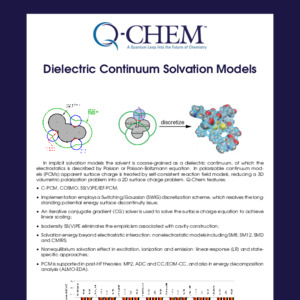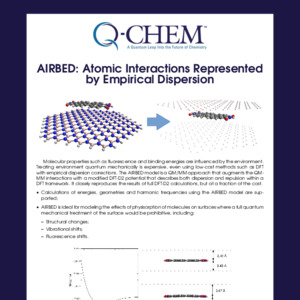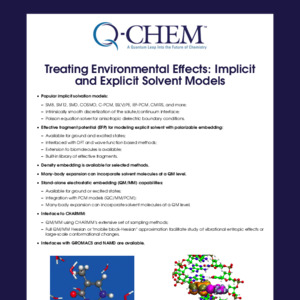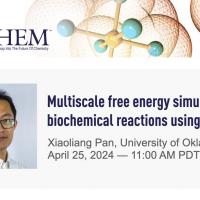Q-Chem Webinar 45
Chemistry doesn't happen in a vacuum: Bringing advanced solvent environments to Q-Chem for dynamics and more
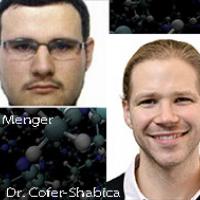
About the Presenters: Dr. Maximilian Menger and Dr. Vale Cofer-Shabica
Dr. Maximilian Menger was born and raised in Germany. In 2019 he earned his PhD in Theoretical Chemistry, as a Marie Skłodowska-Curie European Joint Doctorates scholar. During his PhD, he worked with Prof. Benedetta Mennucci (Pisa) and Prof. Leticia Gonzalez (Vienna) on multi-scale approaches for the description of light-harvesting systems. Dr. Menger’s work led to several high-quality papers, as well as the honor added to his PhD degrees considered to be of the highest quality. Since June 2019, he has been working with Prof. Shirin Faraji, University of Groningen (The Netherlands) on the development of efficient approaches to study the photo-induced nonadiabatic dynamics of medium to large molecules with explicit inclusion of the complex environment. Dr. Menger has actively contributed to various computational chemistry software, e.g. Q-Chem, SHARC, TheoDORE, and is the main developer of PySurf.
Dr. Vale Cofer-Shabica completed his PhD in Physical Chemistry with Richard Stratt at Brown University in 2018. There his work connecting reaction dynamics to potential energy landscape geometry was awarded the Potter Prize for dissertation of outstanding merit. Following his PhD, Dr. Cofer-Shabica served as the Director of Education for the Banneker Institute of the Harvard Smithsonian Center for Astrophysics. In 2019, he joined Joseph Subotnik’s group at Penn, where he works on bridging quantum and classical descriptions of energy transfer in the condensed phase. Current projects include electron transfer at a metal surface and excitation transfer in photoactive systems.
Abstract
The accurate description of electronic energy relaxation in supramolecular and solvated systems presents a considerable challenge for quantum chemistry. Proper descriptions can only be realized if the environment’s effects on structures and excited states are modeled correctly. Unfortunately, a fully quantum mechanical description of such systems is often infeasible due to their large sizes. However, for many systems, the process of interest is localized in a small region, while the majority of the molecular system acts as an embedding environment. In such a case, multi-scale approaches can be applied, which treat the environment and the active region on different footing. Here, we present GIFS a Quantum Mechanics/Molecular Mechanics (QMMM) interface framework between Q-Chem and Gromacs, a fast, free, and extensively developed molecular dynamics (MD) software. It enables the use of QM/MM for simple Born-Oppenheimer MD as well as trajectory surface hopping dynamics. GIFS provides an extensible and efficient way to combine the electronic structure capabilities of Q-Chem with the advanced MD algorithms in Gromacs (or other MD codes). GIFS supports electrostatic (or mechanical) embedding at the QM/MM boundary. Our talk will describe the features of GIFS and provide examples of how the code can be used to study molecular properties in complex environments.
GIFS is developed as a collaboration between the University of Pennsylvania and the University of Groningen. Work in the Netherlands is led by Dr. Maximilian Menger and in the United States by Dr. Vale Cofer-Shabica.

Questions or suggestions?
We hope you enjoyed this webinar! If you have any questions or feedback for the speakers or the Q-Chem team on the topics covered in this webinar, please use this forum thread:https://talk.q-chem.com/t/webinar-45-by-maximilian-menger-and-vale-cofer-shabica-chemistry-doesnt-happen-in-a-vacuum-bringing-advanced-solvent-environments-to-q-chem-for-dynamics-and-more/162.


